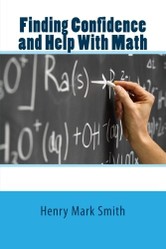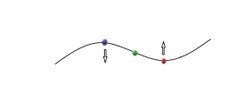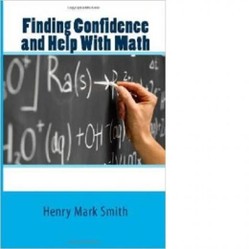For many subjects we learn by reading with comprehension, and a certain amount of memorization. As the grade level increases cognitive skills should be the focus, and much of memorization go by the wayside. But, reading a math book is not enough. First, we must understand the concepts, and give adequate thought when reading them. But, the examples can be even more important. With math, we must understand what we can do to solve a problem, and pick the right steps in the right order to get to a solution.
I have seen too many students say a problem is not like the examples. Well, the examples are to help get an insight into problem solving, not to be matched exactly. Trying to match examples can lead to frustration, and this destroys confidence. Instead, look at what can be done to get to the solution, and implement the steps.
The key word in studying math, from studying arithmetic through studying college math, is practice. There is an art to practice. If your textbook has answers only to odd numbered problems, try only odd numbered problems. Check each answer before going on. Working even numbered problems, if done wrong, reinforces the wrong technique. That would be counterproductive.
No one has time to try every problem. Notice the problems are grouped. If you encounter a problem that you do not understand, look at the corresponding example carefully and see if you can correct the problem. If after a reasonable effort you still have problems, ask in class or ask a tutor. There are online tutors available for help. But be cautioned, asking before really trying might bring an answer, but will you really grasp it? That can bring a false sense of security. After really looking at the problem things will click better when you get the explanation.
After getting a problem cleared up, try others like it. You need to practice the types of math problems you do not understand, not those you have no difficulty with. Make math fit your life and reduce exhaustion and resentment.







 The Linear Equation and Related Equations and Inequalitieson 08/15/2024
The Linear Equation and Related Equations and Inequalitieson 08/15/2024
 Understanding Calculus: A Simplified Approach to Derivativeson 08/05/2024
Understanding Calculus: A Simplified Approach to Derivativeson 08/05/2024
 Limits: Vital Building Blocks of Calculuson 08/01/2024
Limits: Vital Building Blocks of Calculuson 08/01/2024
 Mardi Gras Collectibleson 02/02/2023
Mardi Gras Collectibleson 02/02/2023



Comments
no, I have not.
blackspanielgallery, Have you seen "The Man Who Knew Infinity" about Srinivasa Ramanujan's mathematical intuition untethered by procedures and proofs?